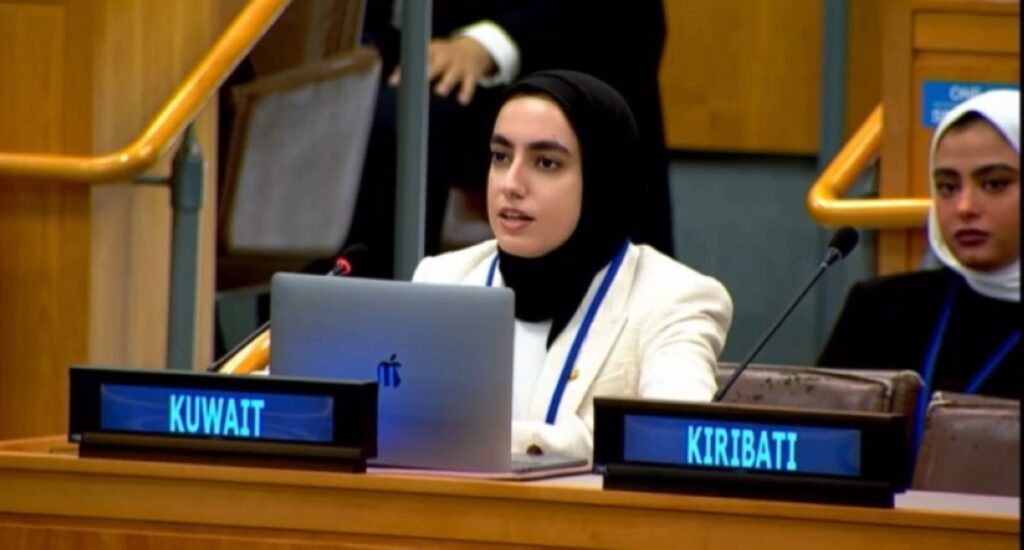NEW YORK: Kuwait affirmed that education is not merely a legal right, but a source of life, hope and the foundation upon which global peace and development are built. This came in a statement delivered by Diplomatic Attaché of Kuwait’s Permanent Mission to the United Nations Maryam Al-Mansouri before the Third Committee (Social, Humanitarian and Cultural) of the 80th session of the UN General Assembly under the agenda item “Promotion and Protection of Human Rights.”
Al-Mansouri expressed Kuwait’s appreciation for the considerable efforts made in preparing the special reports submitted under this item and for the valuable insights and recommendations they contain, which contribute to advancing human rights – particularly the right to education. She commended the dedication of special rapporteurs and experts working to safeguard this right amid the growing suffering of children in conflict zones. Education, she stressed, is not just a legal entitlement but a vital source of life and hope – “the light that dispels the darkness of ignorance and fear, and the foundation on which peace and development are built.”
Al-Mansouri referred to relevant UN resolutions, including those adopted by the Commission on Human Rights, which affirm that the right to education must never be suspended, even in times of armed conflict. She emphasized the need for the international community to intensify efforts to ensure the continuity and protection of education during crises. Quoting UN Secretary-General António Guterres, she said, “Education is not only a human right, but also a path to a better future for every person and to a more peaceful and understanding world,” adding that these words reflect Kuwait’s deep conviction that education lies at the heart of human development, and that people are the cornerstone of nation-building.
Highlighting the devastating impact of wars and conflicts, Al-Mansouri lamented that millions of children are deprived of their right to education as schools are destroyed, teachers displaced and classrooms darkened by violence. She cited the Safe Schools Declaration, which underscores the necessity of protecting educational institutions from military use and attacks, due to their lasting effects on children’s futures.
She affirmed Kuwait’s belief that protecting education during conflicts is both a moral and humanitarian duty – beyond a mere legal responsibility. “From this standpoint,” she said, “Kuwait has made education a priority in its humanitarian and development aid, supporting educational and school rehabilitation programs in conflict-affected countries such as Palestine, Yemen and Syria, in cooperation with UNICEF, UNESCO and UNRWA. Investing in education,” she stressed, “is an investment in peace and in a more stable and humane future.” Education in crises, she added, is not a luxury but a necessity to save lives and uphold human dignity.
Al-Mansouri called on the international community to increase funding for education in humanitarian contexts, integrate education protection into peacekeeping and reconstruction efforts, and strengthen accountability for violations against schools and education workers. She concluded by affirming Kuwait’s unwavering commitment to ensuring that every child, wherever they may be, has the right to learn in safety. “Every child deserves to sit at a school desk holding a book instead of fear and hope instead of pain,” she said. “Let us work together to ensure that education remains a beacon lighting the path for generations, even in the darkest times of war.” — KUNA

